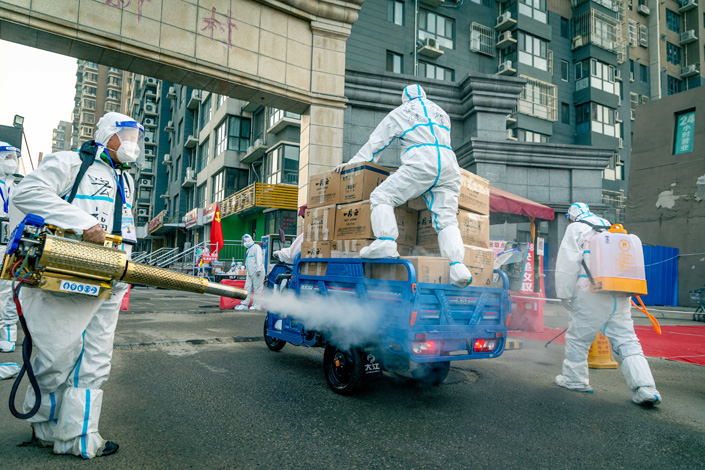Caixin Explains: Beijing’s ‘Space-Time Overlap’ Criteria for Fighting Covid

Amid China’s recent spate of Covid-19 outbreaks, officials have started using the term “space-time overlap” to describe the more expansive criteria that the Beijing municipal government’s disease control authorities are now using to decide what counts as a close contact for a confirmed coronavirus case.
The term came up again Monday, when the Beijing Municipal Health Commission notified residents (link in Chinese) who have had a “space-time overlap” with a reported Covid case to self-isolate, follow local epidemic control measures and put off plans to return to the capital if they are elsewhere in the country.
So what exactly is this expanded criteria and how are authorities implementing it? A health official responsible for tracing close contacts in Southwest China’s Sichuan province told Caixin that mobile communication networks are being used to determine whether people have crossed paths with a confirmed Covid case. Such cases of a “space-time overlap” could result in a person losing their green health code status.
Chinese authorities use the health code, which requires residents to upload their personal information to a specific mobile app, to assess whether they have been in areas with confirmed cases in the past 14 days. A green health code means everything is fine, while a yellow or red code can leave residents barred from traveling around in the country.
The idea is that the technology used to detect a “space-time overlap” can help identify close contacts who don’t actually go to risk areas but pass infected patients at some point, according to disease control authorities in the central city of Changsha.
Caixin has learned some people on trips outside Beijing have been barred from buying train tickets back to the city, even if they had a green health code and even though they hadn’t visited areas of the country at medium or high risk for spreading Covid-19.
Although it remains unclear whether the experiences of these people were related to the expanded criteria referred to as a “space-time overlap,” the following day Beijing health authorities said at a press conference that they will check into complaints about people’s health codes. For people without “abnormal conditions,” the authorities said they would fix their health code status and remove restrictions on purchasing train and flight tickets.
Contact reporter Wang Xintong (xintongwang@caixin.com) and editor Michael Bellart (michaelbellart@caixin.com)
Download our app to receive breaking news alerts and read the news on the go.
Get our weekly free Must-Read newsletter.

- PODCAST
- MOST POPULAR






